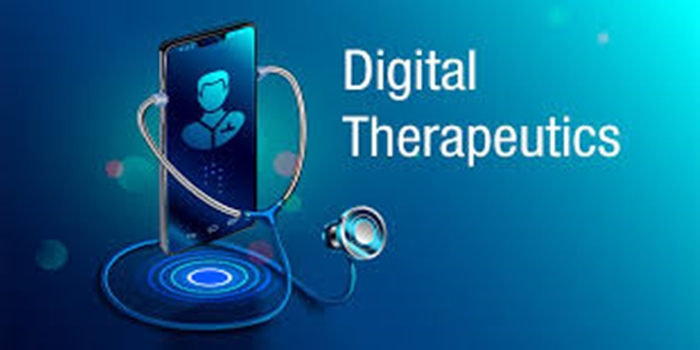In this article, we discussed the digital therapeutics, the categories, technologies powering it, clinical applications of digital therapeutics, the benefits, challenges and limitation.
Definition
Digital Therapeutics (DTx) are evidence-based, clinically evaluated software programs designed to prevent, manage, or treat medical conditions. Unlike general health or wellness apps, DTx are prescribed or recommended by healthcare professionals and are often regulated as medical devices.
The Features of Digital Therapeutics:
Evidence-Based: DTx products must demonstrate clinical efficacy through robust clinical trials, similar to pharmaceuticals or medical devices. Their effectiveness is proven, not just assumed.
Medical Purpose: They are designed to prevent, manage, or treat specific medical conditions, disorders, or diseases.
Software-Driven: The core therapeutic intervention is delivered through software, often via mobile apps, web platforms, or wearable devices.
Patient-Centric: DTx are designed with the patient at the center, often incorporating behavioral science principles to engage users and facilitate adherence.
Regulatory Oversight: Due to their medical claims, DTx products are subject to regulatory review and approval by health authorities (e.g., FDA in the US, CE Mark in Europe), ensuring safety, effectiveness, and data privacy.
Prescribable: Many DTx products are prescribed by healthcare providers, integrating them into existing clinical workflows.
Categories of Digital Therapeutics
- Disease Prevention
Programs to manage risk factors like prediabetes, hypertension, and obesity.
Lifestyle interventions to prevent cardiovascular disease or Type 2 diabetes.
- Disease Management
Digital support for chronic conditions like asthma, heart failure, or COPD.
Tools that track symptoms, medications, and adherence.
- Disease Treatment
Standalone or adjunctive therapies for mental health disorders, substance abuse, insomnia, ADHD, and more.
Clinically validated digital CBT modules for anxiety and depression.
Clinical Applications of Digital Therapeutics:
Mental Health:
DTx are increasingly used for conditions like anxiety, depression, and substance use disorder. They often utilize techniques like cognitive behavioral therapy (CBT) and interpersonal therapy (IPT) delivered through apps and chatbots.
Chronic Diseases:
DTx play a role in managing chronic conditions such as diabetes, cardiovascular disease, and respiratory illnesses. They can help with medication adherence, lifestyle changes, and symptom management.
Pain Management:
DTx, including virtual reality (VR), are being explored for pain reduction in various settings, such as during medical procedures (e.g., venous port access in pediatric oncology).
Neurological Disorders:
DTx are being developed for conditions like Parkinson’s disease and multiple sclerosis, often focusing on improving motor function, cognitive skills, and mood regulation.
Other Applications:
DTx are also being investigated for use in areas like oncology treatment management, gastrointestinal disorders, and neurodevelopmental conditions.
How DTx Work:
Behavioral and Cognitive Interventions:
DTx often deliver interventions that aim to modify behavior and thought patterns, offering an alternative or complement to traditional medication.
Personalized Treatment:
DTx can be tailored to individual patient needs and preferences, potentially enhancing engagement and effectiveness.
Accessibility and Convenience:
DTx can be accessed remotely via smartphones or other devices, increasing access to care and potentially reducing the burden on healthcare facilities.
Key Considerations:
Evidence-Based:
DTx should be grounded in clinical evidence and evaluated for safety and efficacy.
Integration with Healthcare:
DTx are often most effective when integrated into a broader care plan, working alongside other treatments and healthcare professionals.
Ongoing Research:
The field of digital therapeutics is rapidly evolving, and ongoing research is crucial to understand the long-term benefits and risks of these technologies.
Technologies Powering Digital Therapeutics:
- Mobile Apps
Most DTx platforms use mobile apps as the primary interface, incorporating:
Interactive exercises
Video tutorials
Mood tracking
Medication reminders
- Artificial Intelligence (AI)
AI enhances personalization by analyzing:
Patient behavior patterns
Therapy adherence
Response to interventions
- Wearables and Biosensors
Collect real-time physiological data such as HRV, glucose levels, or sleep.
Enable responsive interventions (e.g., adjusting a digital CBT plan based on poor sleep data).
- Cloud Computing
Facilitates remote data storage, analysis, and real-time syncing with healthcare systems.
Allows seamless clinician access to patient progress.
- Telehealth Integration
DTx often integrates with telehealth platforms to:
Enable hybrid care models
Support clinician oversight
Facilitate adjustments to digital therapy.
Benefits of Digital Therapeutics
- Accessibility and Scalability
Can reach patients in remote or underserved areas.
Reduce barriers like stigma, travel, or cost.
- Continuous Care
Unlike episodic clinic visits, DTx offers 24/7 support and feedback.
- Data-Driven Insights
Real-time tracking allows for better patient understanding and timely interventions.
- Cost Reduction
Potential to reduce healthcare costs through early intervention, reduced hospitalizations, and improved adherence.
- Personalized and Adaptive
Learns from user interaction to adjust therapy dynamically.
Challenges and Limitations
- Regulatory Hurdles
Requires clinical validation and regulatory approval, which can be time-consuming and expensive.
- Reimbursement Barriers
Inconsistent payer support, especially in regions without clear digital health reimbursement frameworks.
- Digital Literacy
Requires a certain level of tech-savviness from users, potentially excluding elderly or low-income populations.
- Privacy and Security
Handling sensitive health data poses significant privacy challenges.
Need for compliance with HIPAA, GDPR, and similar regulations.
- Engagement and Adherence
Ensuring long-term user engagement can be difficult.
Drop-off rates may affect therapeutic effectiveness.
Conclusion
Digital Therapeutics are controlled to become an essential element of modern healthcare. By combining the power of software with evidence-based medicine, they offer innovative solutions to address some of the most pressing challenges in healthcare, including chronic disease management, mental health crises, and access disparities.
READ: Therapeutic Art Practices


